- Home
- Tim Lebbon
Desolation
Desolation Read online
RAVE REVIEWS FOR TIM LEBBON!
“Tim Lebbon moves me, challenges me, and makes me remember how rich our particular strange bent can be.”
—Jack Ketchum, bestselling author of Peaceable Kingdom
“Lebbon is a genuinely masterful writer . . . [with] fresh ideas, shimmering prose, and often terrifying scenarios.”
—Rue Morgue
“Lebbon is quite simply the most exciting new name in horror in years.”
—SFX Magazine
FACE
“Intense and affecting, Face will seize and hold your attention from the opening paragraph to the end. A writer blessed with extraordinary gifts, Lebbon’s chief talents lie in exploring the darker moments of everyday life. . . . A true disciple of the dark, Lebbon’s imagery wrings true fear from his audience.”
—Hellnotes
“Lebbon’s novel will reward the careful reader with insights as well as gooseflesh.”
—Publishers Weekly
“Lebbon draws the reader into this nightmare to experience the horror with his characters. Lebbon taps into our universal fear of the unknown, the unseen, keeping this reader looking over her shoulder to catch that slight movement of shadow glimpsed out of the corner of her eye.”
—CelebrityCafe.com
THE NATURE OF BALANCE
“Beautifully written and mysterious, The Nature of Balance will put some readers in the mind of the great Arthur Machen. But with more blood and guts.”
—Richard Laymon, bestselling author of To Wake the Dead
“Vibrant, exploding with imagery, Tim Lebbon takes you on a white-knuckle ride of uncompromising horror. This is storytelling at its best.”
—Simon Clark, author of Vampyrrhic
WRITTEN IN BLOOD
Cain had to leave. This attic had been a refuge, a sanctuary for the crippled old man, and the difficulty he must have faced getting in here made it feel even more special. By leaving the room as it was after his death, the landlord had revealed the true extent of the invasion into Vlad’s life. And much as Cain suddenly felt empathy for that victimised man, he did not feel that he should be here. This was a private place, made more so by its user’s death.
Scrawled in blood on the floor at Cain’s feet, six words: They know I’m going to tell.
Those claw marks on the door? Cain thought. What put them here? And why?
His answer stared him in the face as he turned to leave. Above the door hung an old photograph of Vlad in all his glory, swinging from a trapeze with one hand and waving to the photographer with the other. He was young, fit, full of life, and his smile promised nothing of his grim, lonely demise.
Across the picture were the words: They’re going to kill me tonight.
Other books by Tim Lebbon:
FEARS UNNAMED
FACE
THE NATURE OF BALANCE
DESOLATION
TIM LEBBON
Contents
Chapter One: Nowhere
Chapter Two: Silence
Chapter Three: Circus
Chapter Four: Strangers
Chapter Five: Player
Chapter Six: Follower
Chapter Seven: History
Chapter Eight: Family
Chapter Nine: Meat
Chapter Ten: Music
Chapter Eleven: Shadow
For my childhood friend.
DORCHESTER PUBLISHING
Published by
Dorchester Publishing Co., Inc.
200 Madison Avenue
New York, NY 10016
Copyright © 2005 by Tim Lebbon
All rights reserved. No part of this book may be reproduced or transmitted in any form or by any electronic or mechanical means, without the written permission of the publisher, except where permitted by law. The scanning, uploading, and distribution of this book via the Internet or via any other means without the permission of the publisher is illegal and punishable by law. Please purchase only authorized electronic editions, and do not participate in or encourage electronic piracy of copyrighted materials. Your support of the author’s rights is appreciated.
This is a work of fiction. Names, characters, places, and incidents are either the product of the author’s imagination or are used fictitiously. Any resemblance to actual persons, living or dead, events, or locales is entirely coincidental.
Trade ISBN: 978-1-4285-1752-3
E-book ISBN: 978-1-4285-0207-9
First Dorchester Publishing, Co., Inc. edition: March 2006
The “DP” logo is the property of Dorchester Publishing Co., Inc.
Printed in the United States of America.
Visit us online at www.dorchesterpub.com.
DESOLATION
Chapter One
Nowhere
Cain had few possessions, even fewer memories, and no family. Nowhere seemed a perfect place to begin his new life.
The taxi dropped him at the curbside and left him sitting on his suitcase, several plastic carrier bags scattered around his feet like bloated dead pigeons, real birds chattering from gutters and telephone lines, irate at his intrusion. He turned to the wooden chest beside him on the pavement and grabbed its handle, hardly surprised when he found he could lift one end from the ground with ease. Its weight seemed to vary with his own moods. Today, he was happy to be here.
The street sign announced itself as Endless Crescent, but some wit had daubed Nowhere across the name in bright blue paint, ironic vandalism that would likely confuse more than amuse. Such skewed intelligence was hardly in evidence in other graffiti that decorated walls along the street, occasional proclamations such as “Darren woz yer,” and “Mandy has a wet pussy,” and “Follow me for the Way.” Some of the perpetrators had imagined themselves as artists, the vandalism taking on colors and shades and shapes that were meant to bestow individuality. Such ego was a nonsense, as the work was always done in secret. Cain stared at one of the names sprayed across the side of a garage in great green swaths, “Kelvin,” the tails of the K turned up into crude wings, the dot of the i a hooded eye, comical when it was intended to be threatening. He wondered where Kelvin was now, what he was doing, and whether he even knew himself.
Someone had once tried planting trees in an attempt to turn Endless Crescent into an avenue, but their efforts had led nowhere. Thin stumps protruded from squares of removed paving slabs, snapped off at waist height or lower, kicked and scarred, and blackened with dog piss and rot. The ground around them held more life, weeds sprouting as if in mockery of the trees’ doomed attempts at existence.
The houses in the street were all large, an unusual mix of modern and Victorian, mostly three-storys, and over half of them had been converted into flats. The unmistakable signature of student accommodation marked some: open windows blaring a heady mixture of rock and dance music, bikes chained to garden fences like dangerous pets, uncurtained windows displaying half a dozen scenes of domesticity gone awry. Most of the houses were in a good state of repair, though one or two looked as if they should have been condemned years before. Indeed, one house directly across the street from where Cain sat seemed to have been surrendered back to the wilds. Its render had blown and been shed right across the front facade, and its windows were smashed, boarded up from the inside. The front garden was a riot of weeds and unkempt rosebushes. Cain could see the house’s nameplate bolted to the wall beside the corrugated iron front door: HEAVEN. A joke, surely. He closed his eyes and shook his head, and when he looked again the sign still read the same.
A shout sounded from somewhere out of sight, a woman’s shrill voice calling some missing kid in for lunch. Perhaps it had been missing for months and the woman tried this every day, hoping that continued normality would bring her child scampering back to her from whatev
er unknown distance it had traveled.
Cain looked down at his feet. Narrowing his field of vision helped him to calm his nerves. He shifted slightly and the suitcase flexed beneath him, threatening to burst open and spill his clothes across the street like fabric guts. He should go. He should stand and drag his possessions along to Number 13, his new home, his new life, or so he had been told. It’s time to stand on your own two feet, the Face had said, handing him another pill.
Two children ran along the street, laughing and swearing, and laughing again at their secret rebellion. To Cain they seemed easily old enough to be in school, and too young to be out on their own. They stopped a few feet from him and sized him up, their eyes far too mature for their age.
All Cain could remember of his own childhood were the dreams.
“Hey, mister!” the taller of the two kids said. “You wearing that coat for a bet?”
Cain glanced down at the duffel coat, up at the sky, the sun burning its way through a haze of clouds. “It was cold where I came from,” he said.
“Where’s that, then, the fuckin’ Arctic?” the short kid said, and they both laughed.
“No, not that far away,” Cain said, trying to remember the name of the home, but there were only feelings and sensations—rough sheets on his bed, sterile decor, dirty floors—and the Face and Voice giving him advice and pills, food and comfort.
“I like your new sitting room,” the tall kid said. “Where are we, then, in your kitchen? Where you going to sleep, in the box?”
Cain smiled. “It’s a chest,” he said, “and I’m sure I’d never fit in there.”
“Bet I would,” the short kid said.
“I’m sure you would.”
The three fell silent for a few seconds, a silence loaded with something uncomfortable that Cain could not quite pin down. Had he issued a slight threat? Had the kids perceived it that way? Or were they threatening him?
“I’ve just moved here,” he said, “from somewhere else.”
“The fuckin’ Arctic!” the kids said in unison, giggling at their humor.
“Shouldn’t you two be in school?”
They looked uncomfortable at that, avoiding his eyes, kicking at a crushed tin can, and giving the street another note to its urban theme. Cain wondered if the sounds around him made up the whole, or whether the street would have been exactly the same without them. He doubted that. Tin can rattling, distant music blaring, mothers shouting, a dog barking, cars grumbling, kids screaming, pans crashing, doors slamming . . . He was somewhere unique, a place set apart from anywhere else by its own distinct sounds, sights, and smells. He tried not to sense too much.
“There,” Cain said. “That’s my new place. At least, a part of it is.” He reached into his jacket pocket and pulled out the letter of introduction, already crinkled and grubby from many readings. Afresh Respite Home, Tall Stennington, the letterhead read, and he knew where he was from.
The kids looked to where he was pointing and laughed, punching and grappling each other as they turned and ran away from Cain. “So you’re another fuckin’ nutter, then!” the tall one shouted over his shoulder, running faster as if to escape the words.
“What?” Cain stood from his suitcase. But the kids slipped into a lane between two houses and were lost to him, leaving behind only an echo in his mind . . . another fuckin’ nutter . . . “We’ll see,” Cain said. He looped his finger through the carrier bag handles, lifted the suitcase, hefted the chest with his other hand—it still felt very light, almost empty, and he could move it by dragging one end along the ground—and approached Number 13 Endless Crescent. “We’ll see.”
The front gate swung open when Cain nudged it with his knee, and he was able to negotiate his way through and kick it shut behind him without having to put anything down. There was a path and a planting bed and that was it; no lawn, no graveled area. The plants were waist-high and lush, their leaves dark green, big, spiked, like something from a rain forest instead of a suburban front garden in South Wales. And although there was variety here, all the plants must have belonged to the same family. Some leaves were larger than others, a slightly different shape, an alternative shade of dark green, but they were all spiked, with bright orange flowers hidden down at the leaf stems as if hiding away from the sun instead of seeking it. The many bees harvesting their pollen were fat, heavy, and lazy, providing a low background drone. It was strange, but Cain did not know why. The only other garden he knew was at the Afresh Respite Home, and that had consisted of a huge, square lawn with a few random shrubs at its edges and a summer house in one corner. Functional and easily maintained, with nowhere for mad folk to hide.
As he approached the front door, Cain realized that the garden was louder than the street. Leaves whispered in a slight breeze, bees bumbled from one flower to the next, and down beneath the waist-high canopy something was scurrying around in the shade. Birds, perhaps. Or mice. But all these sounds were somehow louder than the occasional car passing beyond the gate, the woman still calling her child’s name in vain, the music polluting the summer day from open windows. It was as if coming through the gate had moved him on a great distance.
For the first time Cain felt truly alarmed at being out here on his own, away from what he knew. He had been thrilled when the Face told him it was time to leave, invigorated, proud of his soon-to-be independence. Although his father’s death and much of Cain’s existence from before were little more than dreams—like the memory of a book read long ago, someone else’s life and experiences—he felt strong and fit and ready to begin again. He knew he was ready, he was certain of it . . . and yet he craved that Face and that soothing Voice. The cool hand on his brow. The calm void of drug-induced sleep.
Natural sleep was when it hit him the most. Then, so the Voice had said, Cain’s mind tried to compensate for his lack of memories by creating false ones. Never trust them, he had said, they lie, and dreaming is going to hinder your recovering mind as much as aid it. Cain had his doubts, but the Voice knew what it was on about, he was qualified. Cain shook his jacket and heard the comforting rattle of pills. Here, the Voice had said quietly just as Cain was leaving, don’t tell . . . but take these. They’ll help you to settle in with only reality as your bedfellow.
“Help you?”
Cain spun around, letting out an involuntary squeal.
“Whoops, sorry!” The man in the doorway held up both hands and stepped back into the house. “Didn’t mean to spook you.”
“I’m not spooked,” Cain said. Strange choice of words. “Just a bit startled. Sorry. I was admiring the garden.”
“Ah yeah, the plants. They look a bit severe, but they keep people to the path.” The man came forward again, down the small front door step so that he was on a level with Cain. He was only Cain’s height, but something about his bearing made him appear taller.
“I’m here for the flat,” Cain said. “I have this.” He handed over the crumpled letter from Afresh, and the kids’ parting shot echoed once more in his mind, another fuckin’ nutter . . .
The man opened the letter, smoothed it several times as if the creases contained hidden messages. There were none—Cain had read it a hundred times on the way here—but still he was nervous at what would be found.
“That seems fine,” the man said. “I’ve had the flat ready for a couple of days, wasn’t sure when to expect you. Come on in and I’ll show you up.”
“That’s it?” Cain said. It all felt so easy.
The man gave him a frank up-and-down inspection, as if looking for scars or something less visible. “As I said, I’ve been expecting you. The people who sent you appear to be very good payers, and everything’s sorted. I’m not going to make anything hard for you with the deal I have with them. You stay here for a whole year, I get paid. You do a bunk at the end of the first week and disappear, I still get a year’s money. Not bad, eh?”
“Not bad,” Cain said, impressed, confused, flattered at the Home’s confidence i
n him.
“I’m Peter,” the man said, holding out his hand.
“Cain.”
“Pleased to meet you, Cain. First name? Last?”
“Just Cain. It’s easier to remember.”
Silence hung heavy for a few seconds, backed by buzzing bees and rustling beneath the plants that kept people to the path.
“So what happened? The letter says you’re been in the Home for quite a while.”
“My father died.”
Peter raised his eyebrows, expecting more.
Cain frowned, looked down, and he could remember nothing.
“No worries, just me being nosy,” Peter said. “Never could keep my nose out of other people’s business. Comes with being a landlord, I guess. Come on in.”
Cain heard something in Peter’s voice that told him he would be questioned again later. How would the landlord take the answer?
I don’t really know what happened to me, Cain would have to say. My father died, but before that there was only loneliness, and time, so much time. I don’t remember much of it except in dreams. And most of those are bad. Would Peter want someone without a past in his building, good deal or not?
Peter took the suitcase and left Cain with his carrier bags and the chest. Cain hefted the latter up over the front door step, and for the briefest instant it felt heavy, heavier than was possible, as if suddenly filled with lead. He grunted and let the chest hit the floor, then tried again. It slid easily across the quarry-tiled lobby.
“Hot day,” Peter said. “You warm in that coat?”
“It was cold where I came from.”
“Tall Stennington?” Peter headed for the staircase, head tilted slightly awaiting the answer, but Cain offered none. The landlord dropped the suitcase unceremoniously at the foot of the stairs, then turned around and grinned at Cain where he struggled with the chest.
“No lift, I’m afraid,” Peter said. “Almost had one put in a couple of years back for a guy who lived on the second floor. He used a wheelchair, so I’d have got a grant from the council. Then I could have charged more because I’d have been disabled access compliant. But he didn’t need it in the end.”

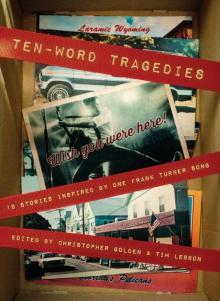 Ten-Word Tragedies
Ten-Word Tragedies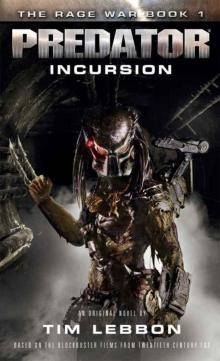 Predator: Incursion
Predator: Incursion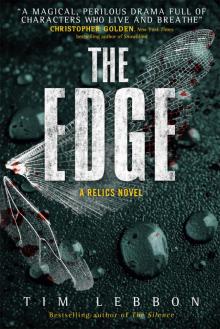 Relics--The Edge
Relics--The Edge Firefly
Firefly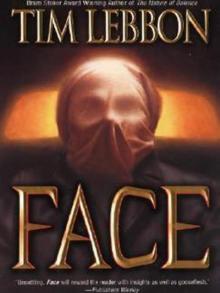 Face
Face Generations
Generations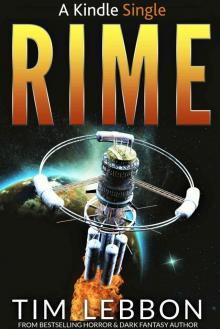 RIME (Kindle Single)
RIME (Kindle Single) Fallen
Fallen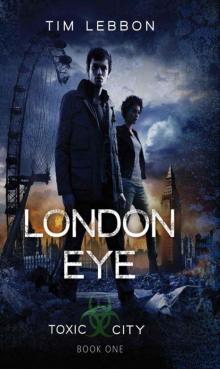 London Eye tc-1
London Eye tc-1 Kong: Skull Island
Kong: Skull Island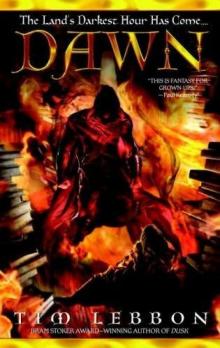 Dawn n-2
Dawn n-2 Into the Void: Star Wars (Dawn of the Jedi)
Into the Void: Star Wars (Dawn of the Jedi)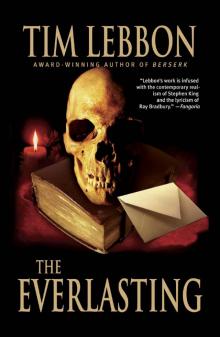 The Everlasting
The Everlasting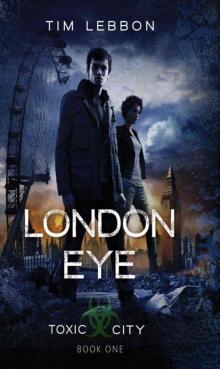 London Eye: 1 (Toxic City)
London Eye: 1 (Toxic City)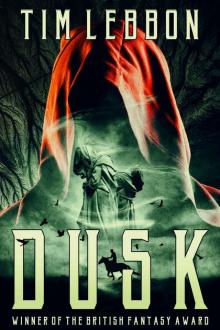 Dusk: a dark fantasy novel (A Noreela novel)
Dusk: a dark fantasy novel (A Noreela novel)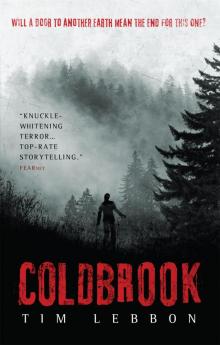 Coldbrook
Coldbrook Alien
Alien Dusk
Dusk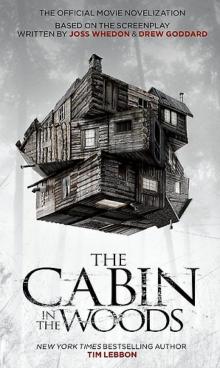 The Cabin in the Woods
The Cabin in the Woods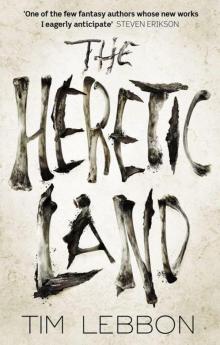 The Heretic Land
The Heretic Land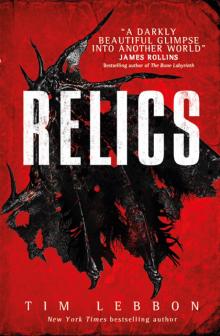 Relics
Relics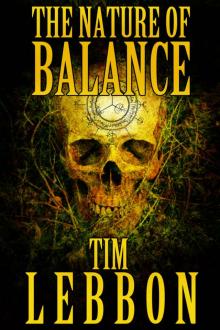 The Nature of Balance
The Nature of Balance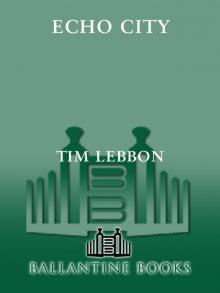 Echo City
Echo City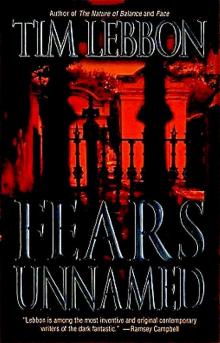 Tim Lebbon - Fears Unnamed
Tim Lebbon - Fears Unnamed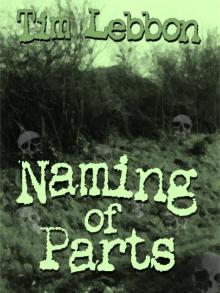 Naming of Parts
Naming of Parts Alien--Invasion
Alien--Invasion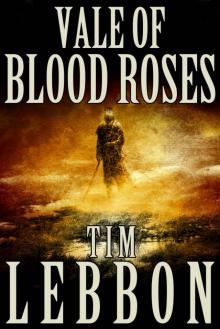 Vale of Blood Roses
Vale of Blood Roses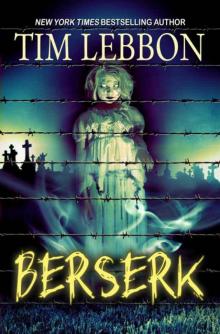 Berserk
Berserk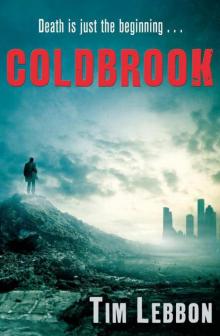 Coldbrook (Hammer)
Coldbrook (Hammer)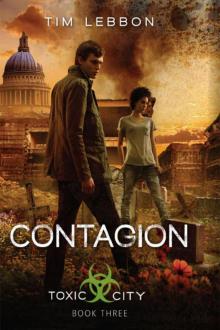 Contagion tc-3
Contagion tc-3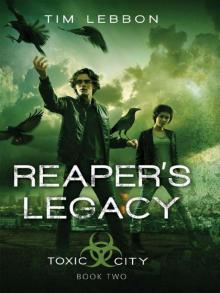 Reaper's Legacy: Book Two (Toxic City)
Reaper's Legacy: Book Two (Toxic City)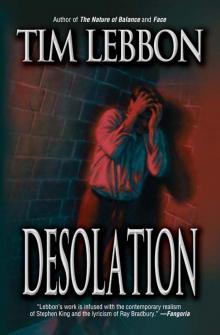 Desolation
Desolation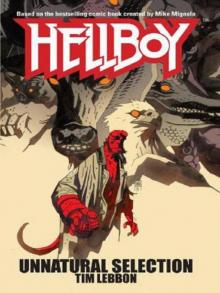 Unnatural Selection
Unnatural Selection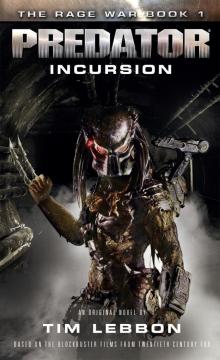 Predator - Incursion
Predator - Incursion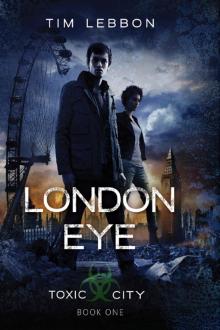 London Eye
London Eye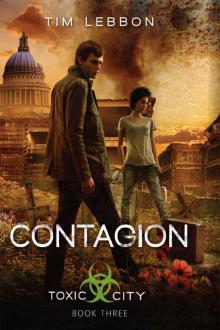 Contagion (Toxic City Book Three)
Contagion (Toxic City Book Three) The Silence
The Silence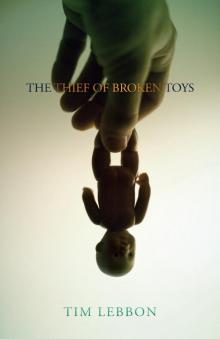 The Thief of Broken Toys
The Thief of Broken Toys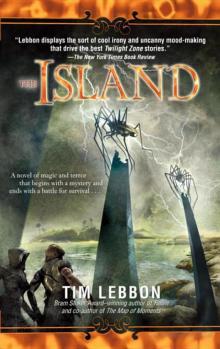 Tales of Noreela 04: The Island
Tales of Noreela 04: The Island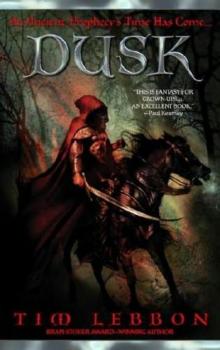 Dusk n-1
Dusk n-1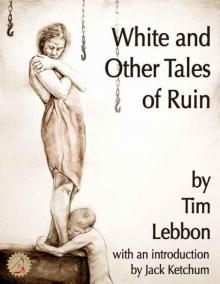 White and Other Tales of Ruin
White and Other Tales of Ruin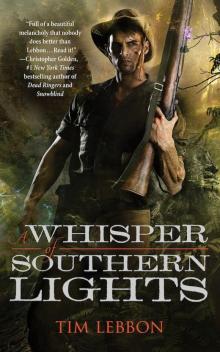 A Whisper of Southern Lights
A Whisper of Southern Lights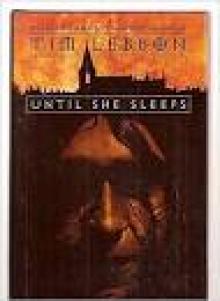 Until She Sleeps
Until She Sleeps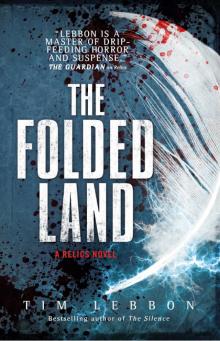 Relics--The Folded Land
Relics--The Folded Land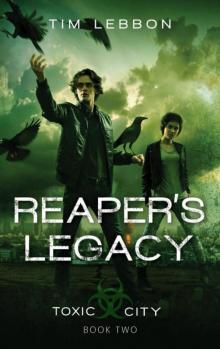 Reaper's Legacy tc-2
Reaper's Legacy tc-2 Alien: Out of the Shadows
Alien: Out of the Shadows Pieces of Hate
Pieces of Hate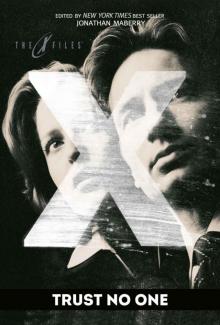 X-Files: Trust No One
X-Files: Trust No One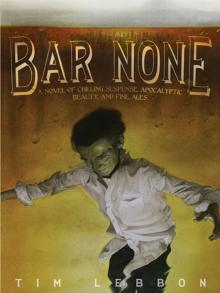 Bar None
Bar None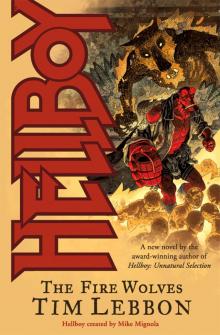 The Fire Wolves
The Fire Wolves